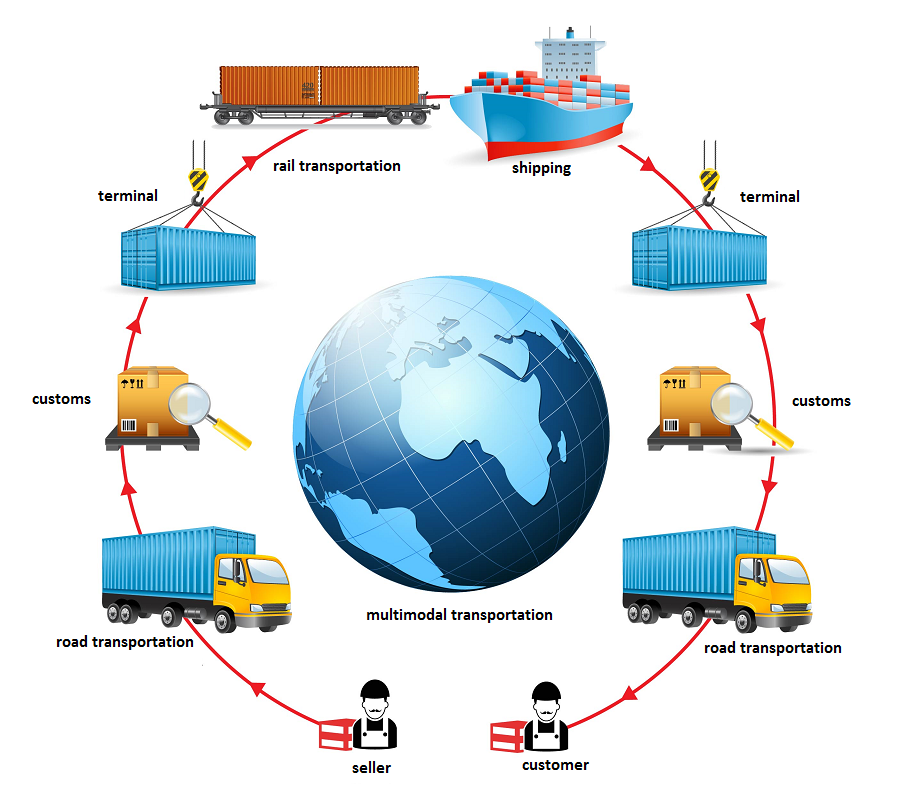Delivery of goods from the seller to the buyer cannot always be carried out by one type of transport due to the geographical location of the sending company and the recipient company.
It is not uncommon for suppliers to use multiple modes of transport for shipping in order to reduce logistics costs and delivery times.
And with this type of transportation, the supplier himself chooses route options, controls its overload, concludes contracts with all companies involved in the process and prepares documents.
Of course, this is difficult, unreliable and adds a headache to the shipper.
In such a situation, multimodal transportation companies come to the rescue.
Multimodal transportation is transportation carried out by at least two modes of transport, and the contract is concluded between two parties: a supplier and a logistics company.
The latter is responsible for the safety of the cargo, registration, reloading along the entire length of the route.

Despite the fact that a different type of transport is used for this type of transportation, in practice very few logistics companies have such a diversified transport fleet.
Therefore, for the execution of the contract, the contractor has the right to apply to sub-carriers (valid carrier fv — in maritime law). This is a common practice.
In this case, the customer has the right to demand from the contractor all information about those contractors with whom he will cooperate in the process of fulfilling the order.
Undoubtedly, multimodal cargo transportation has a number of undeniable advantages:
— cost reduction.
The contract is concluded with only one company, respectively, payment is made to only one performer.
— shorter delivery times.
Responsibility for the timely delivery of goods lies with the contractor. Therefore, it independently searches for subcontractors and concludes contracts with them.
— great security and guarantees.
The contractor is responsible for the safety and delivery of the cargo. Therefore, in case of loss or damage to the goods, it is he who pays compensation.
— collection of documents is minimized.
The customer transfers one package of documents to the contractor, the contractor prepares all the rest independently.
Product suppliers often use this service, especially if the goods are delivered to the countries of the Asian region, with the countries of which Russia is actively expanding cooperation.
For example, the Blago Group of Companies, which is one of the largest producers of vegetable oils in Russia, shipped 2,000 tons of sunflower oil from the Ertil oil extraction plant to China.
The cargo in flexi-tankers was delivered to the Pridacha station of the South-Eastern Railway, where a container train was formed to Novorossiysk.
The train travel time was 1 day, after which 93 containers with products were loaded onto a container ship, which left for Shanghai on October 11.
The plant used the multimodal transport format for the first time, but earlier the company had already sent its products in a similar way through the Far Eastern ports from Siberian plants.
Now such a scheme has passed its testing and became available for Voronezh and Krasnodar factories.
Southern ports, such as the port of Novorossiysk, will become an integral part of such routes for this and other companies.

